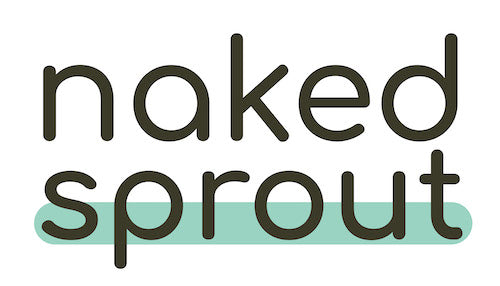The Plastic Problem: Single-Use Plastic and How Chuck It

Introduction
A typical Tuesday: you get up, brush your teeth, wash your hair, and grab your morning coffee on the way to work. Lunch is a meal deal, with a sandwich, drink, and snack. You pop into a shop on the way home to grab a few bits for dinner and some toilet rolls, because you’ve run out.
It's the standard routine for many of us. But all of it - the toothpaste, the meal-deal, the bits on the way home, often come courtesy of single-use plastic, destined for the bin.
In this blog post, we'll look at some examples of single-use plastics, why they’re wreaking havoc on our environment, and how planet-loving shoppers can give it the heave-ho.

What is Single-Use Plastic?
Single-use plastics are disposable items designed for a single, short-term use before being discarded. Examples include plastic bags, plastic cutlery, and the transparent plastic wrapping that covers most supermarket loo rolls.
These items offer more convenience to the shops that sell products, and arguably to customers as well, but all this convenience comes at a huge cost to our environment.
What harm can a little plastic wrapper do? Here’s a quick run-down of the damage of single-use plastics:
Pollution and Litter: One of the most obvious consequences of single-use plastics is pollution. Crisp packets, drinks bottles, and plastic bags frequently end up littering streets, parks, rivers, and oceans, harming the environment and wildlife. Marine life, in particular, is in peril as plastic waste contaminates our seas. The Great Pacific Garbage Patch, a massive collection of floating plastic waste in the Pacific Ocean, is estimated to be three times the size of France.
Microplastics: Plastic doesn't decompose like organic materials do. Instead, it breaks down into small fragments known as microplastics, which stick around for hundreds of years. Microplastics are widely found in drinking water, plankton, and even breastmilk! Urgent research is being carried out to understand the long term effect of these tiny particles of plastic on human health and the health of wider ecosystems.

Resources: Plastics are derived from fossil fuels, whose use is a huge driver of the climate changing gases that are fuelling climate change. And turning these plastics into the disposable items we use everyday is hard on the environment as well, adding yet more CO2e to the climate debt.
How do we Break Free?
Plastic is a problem, and single-use plastic is the worst of it. Fortunately there are a few things we can do to cut the amount it features in our daily lives.
1. Re-use your shopping bags
The widespread use of reusable shopping bags made from materials like canvas, jute, or recycled plastic, are one of the big environmental successes of recent years. Campaigns to reduce single-use bags are most effective when backed up with legislation - The UK’s plastic bag charge, for instance, has led to a 98% reduction in plastic bag consumption.
2. Invest in drinks containers
Plastic drinks containers are a major contributor to single-use plastic waste. Investing in a durable, reusable water bottle made from stainless steel, glass, or BPA-free plastic will save money in the long run and reduce plastic waste. Many coffee shops offer discounts to customers who bring their own cups, making it a win-win for your wallet and the environment.

3. Minimal Packaging and non-Plastic Alternatives
When shopping for everyday items, pay attention to packaging. Opt for products with minimal or recyclable packaging. Choose loose fruits and vegetables over pre-packaged ones, and consider purchasing in larger quantities to reduce overall packaging waste.
New alternatives to plastic are being developed all the time, so it’s also worth checking to see if there’s a different option available for your everyday essentials. Naked Sprout are friends with Adios Plastic, a UK-based business who offer dog poo bags made from corn starch!
4. Beach Cleanups
Getting involved in local cleanup efforts and initiatives to reduce plastic pollution in your community can be a rewarding way to make a positive impact. We are based in Brighton, and our council offer support to local companies and organisations who would like to give back in the form of a collective beach tidy!

The Bottom Line: Corporate Responsibility
That’s the things we can do as consumers, but we would argue that the final responsibility lies with the manufacturers who are producing these materials in the first place. The companies behind the products we use every day are favouring plastic because it provides an easy, cheap, and attractive way for them to get their products to you, regardless of the environmental consequence.
There’s actually good evidence that the anti-littering campaigns were started by food industry groups in America, to distract attention from the huge amounts of plastic wrapping that they had started to produce. As always, it’s not enough for consumers to want to see change, it has to come from the manufacturers themselves.
That’s why we at Naked Sprout offer 100% plastic-free tissue products. We don’t package any of our tissues, kitchen rolls, or toilet rolls in plastic, and we don't use tape on our boxes.

Conclusion
Single-use plastics have infiltrated every aspect of our lives, and their environmental toll is too great to ignore. Small changes in our daily habits can have a profound impact, but at the end of the day the responsibility lies with manufacturers; responsible brands will be honest about the plastic in their supply chain, and take steps to reduce it to zero.
Want your toilet rolls, kitchen rolls, and tissues delivered - with no plastic in sight?




